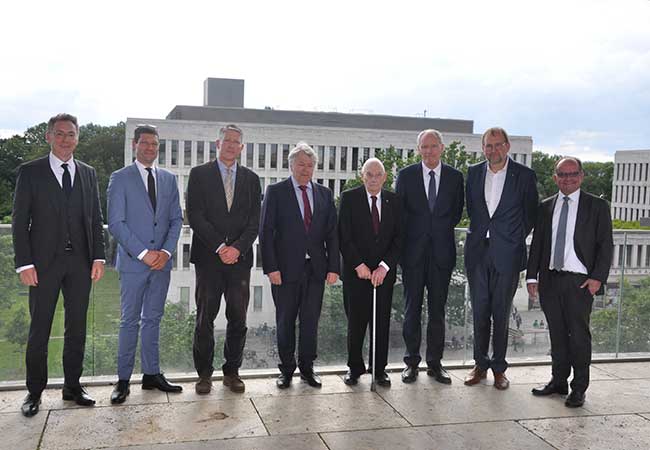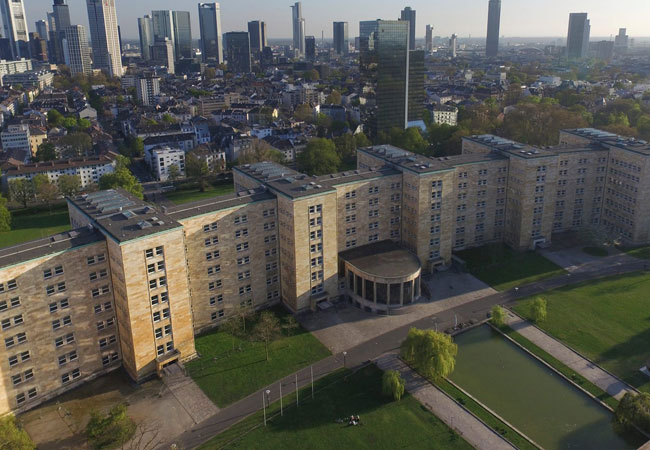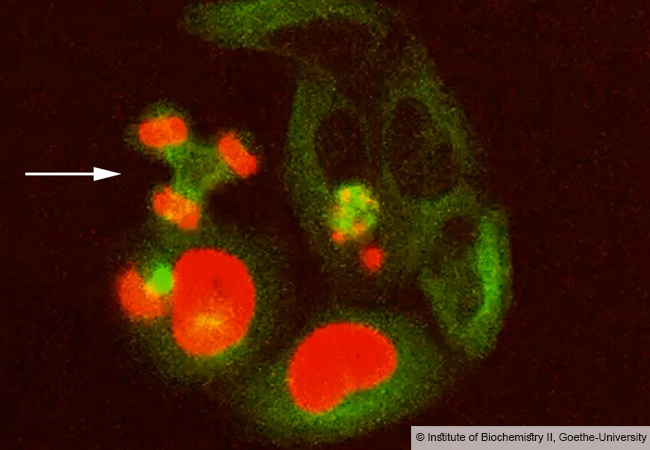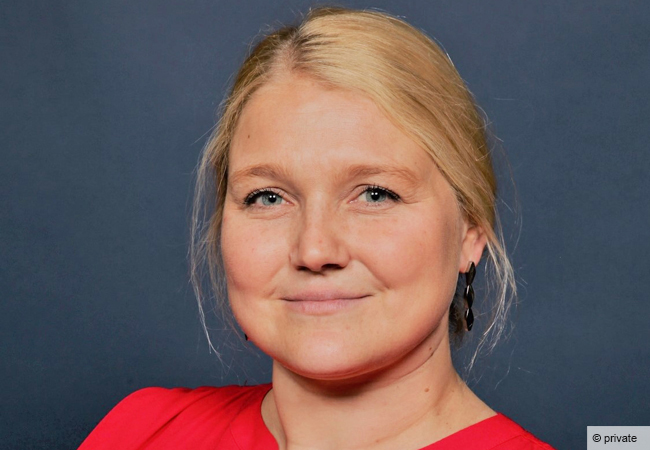
As a young prosecutor in the Auschwitz trial, held in Frankfurt, he courageously campaigned for the legal investigation of unimaginable crimes, which even today, at age 95, he does not tire of telling young people about. In early July 2024, Goethe University Frankfurt’s Faculty of Law awarded an honorary doctorate to Gerhard Wiese, who himself had been a student of law in Frankfurt. “That’s too great an honor,” was his first reaction upon learning of the news. Having already received the Order of Merit of the Federal Republic of Germany as well as the Order of Merit of the State of Hesse, he thought his work “already was very well valued.”
He accepted the honorary doctorate with deep gratitude and told those present in lecture hall 11 of Westend Campus’ main lecture hall building about his voluntary work. Since being included in the list of the most important residents of the state of Hesse, he has been a frequent guest at schools and universities – where he talks about his experiences at the Frankfurt trials, when he was part of the team led by Attorney General Fritz Bauer. Wiese, who was born in Berlin, was 28 years young at the time, serving as one of three public prosecutors who prepared the mammoth trial against 22 employees of the Auschwitz concentration camp. He was responsible for two particularly brutal perpetrators: SS-Oberscharführer Wilhelm Boger and Rapportführer Oswald Kaduk.
In his laudatory speech, Ronen Steinke, journalist at Süddeutsche Zeitung, emphasized Wiese’s stamina and strength of character, which put him ahead of many of his contemporaries in a society that wanted to bring the recent past behind it as quickly as possible. It took considerable courage to be part of the first judicial processing of the murder of six million Jews, said Law Faculty Dean Prof. Stefan Kadelbach in his address, reminding the audience that since some of the sentences handed down were rather lenient, Wiese appealed. However, the legal opinion on SS men in the Auschwitz concentration camp, who could not be proven to have committed a specific act of murder, only changed many years later. The faculty does not often award honorary doctorates, Prof. Kadelbach said, adding that the last time was 13 years ago. In this case, however, he said, it was really a question of why the honor had not been conferred earlier.







